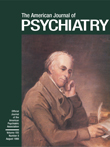Psychotherapy and Substance Abuse: A Practitioner's Handbook
This book is a valuable resource for therapists who encounter patients with addictions. It is written more for the general therapist than the addiction specialist. The list of contributors is impressive, including many leading American addictionologists. These individuals help to familiarize the reader, presumably a mental health practitioner, with psychotherapeutic approaches to alcohol and drug abuse. This enhances the book for the nonspecialist in addictions. I feel that the intended audience is the mental health practitioner who does not usually work in a chemical dependency treatment setting.
There are three broad areas: basic issues, clinical strategies, and special populations. There are also several sections that emphasize psychotherapy and rational emotive therapy in integration with a 12-step model. This book is a timely review of the psychological treatments and their application to therapy for addictions. It contains many useful and anecdotal facts as well as a well-developed review of the literature. It differentiates between psychotherapy and simple psychological treatment of addictive disorders in a way that is beneficial to the reader. Chapters include topics such as cognitive and behavioral treatment of substance misuse as well as a review of the value of group therapy in addictive disorders. A review of Alcoholics Anonymous is also included. This well-referenced book would make a very nice complement to any course of instruction concerning the treatment of addictive disorders.
Psychotherapy and Substance Abuse is a good book for its intended audience. It covers the concepts of drug abuse treatment for the general mental health practitioner very well. The only thing that prevents it from being a better book is the fact that it is aimed too much to the generalist and lacks the details one would like. If size permits, a second edition with details of interest to both the general therapist and the addiction specialist would enhance the value of this otherwise excellent text.



